I’m not the athletic sort, so forgive me for mixing metaphors when I say that we gardeners have to learn to roll with the punches when life throws us curveballs. Whatever word picture you prefer, the heat and sun we experienced late last month was a curveball we’ll talk about for a long time. As you clean up damaged plants and try to help your garden recover, here are some tips for dealing with the curveballs, split into five major categories by type of plant.
- Annuals. If you couldn’t keep up with watering your hanging baskets and other annuals during the heatwave, some of your flowers may be toast. The damage showed up quickly with annuals–if they turned brown and crispy, they most likely simply succumbed. If, however, you watered faithfully and your flowers still took a beating, it’s not too late to give them a light pruning, a good dose of Jack’s Classic fertilizer (available at Vander Giessen’s), and keep up with consistent watering. Summer in Northwest Washington can last through September, so there’s plenty of time for your plants to recover and provide a great show!
- Perennials. In my own yard, the heuchera I have planted in the sun took the brunt of the damage as far as my perennials are concerned—which is no surprise, considering that in hotter climates, heuchera is a shade-only plant. If your heuchera or other perennials crisped up, trim off the damaged leaves and lightly fertilize with Jack’s Classicote or Espoma Plant-Tone fertilizer, then keep them well-watered and they should bounce back just fine.
- Shrubs. Hydrangeas, rhododendrons, and conifers like fir and spruce appear to have sustained the worst damage of what I’ve seen so far. Thankfully, hydrangeas put out new leaves fairly quickly, so prune off scorched leaves and keep them watered and they should leaf out again soon–if they haven’t already! Most of the damage I’ve seen on rhododendrons was to the tender newer growth they’ve put out in the last several weeks, so prune off those leaves and they’ll hopefully put out some new growth yet this summer and early autumn. Unfortunately for sunburnt conifers, the damage will be longer-lasting and may leave scars evident for several years, so gently shake off burnt needles or prune back damaged branches and keep your plants watered through the rest of summer to minimize any further damage.
- Lawns. Even if you choose to let your lawn go brown over summer, remember that our Pacific Northwest grasses are not drought-loving and will need occasional water to stay alive until autumn rains return. Even watering twice a month is helpful—your lawn won’t stay green but the roots will stay alive and save you having to totally reseed your lawn come fall or next spring.
- Vegetables. Depending on what you’re growing, your vegetable garden may have loved or hated the hot weather. Lettuce bolted, turning bitter and relegating itself to the compost bin while corn and beans grew as much as several inches a day. If you have some cool-weather crops that have finished out for the season, pull them out and seed a fresh crop–now is a great time to replant lettuce, radishes, peas and other cool-weather crops for a fresh harvest this fall.
Finally, as if the heat and intense sun wasn’t enough to deal with in the last few weeks, we’re into budworm season, that time of year when green caterpillars eat the flowers and buds off your petunias, geraniums and calibrachoa. While not an unexpected event for those of us who have fought these pests the last several years, if you’re unfamiliar with them it can seem like a mystery why your flowers suddenly seem to stop blooming. Keep your plants blooming all season long by spraying them at dusk with Bonide Captain Jack’s Deadbug Brew, an organic insecticide for budworms and other pests available at Vander Giessen’s. Repeat every three to four weeks and enjoy blooming flowers well into autumn.
They say that nothing worthwhile is easy, and the axiom rings true in gardening just as much as any other hobby. Frankly, we gardeners have it pretty easy here in the Pacific Northwest, so surviving a thousand-year heatwave should be a mark of our dedication and resilience. After all, we’re just learning to roll with the punches when life throws us curveballs…or something like that.

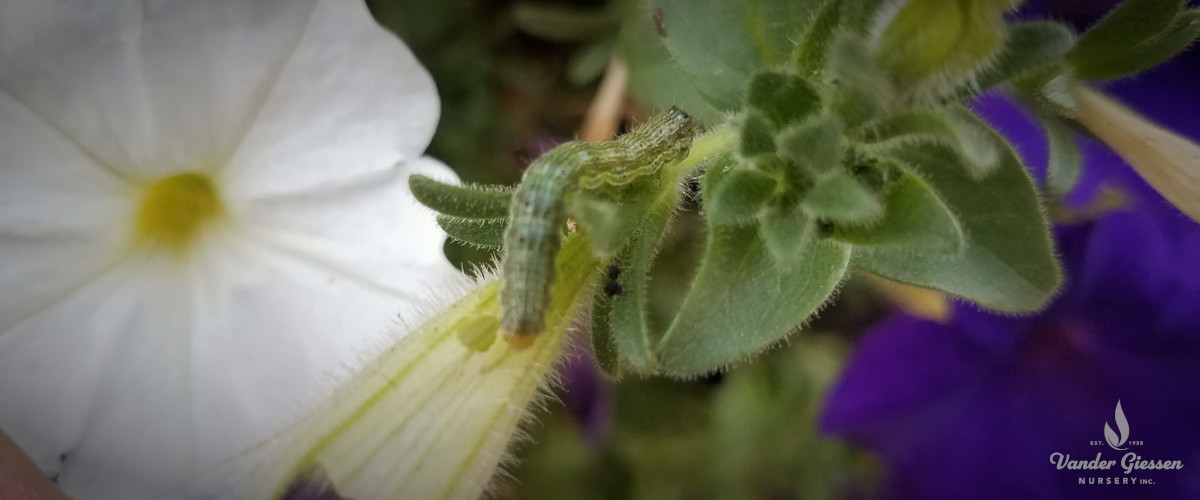
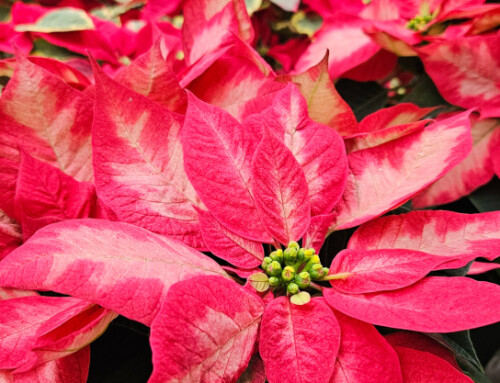
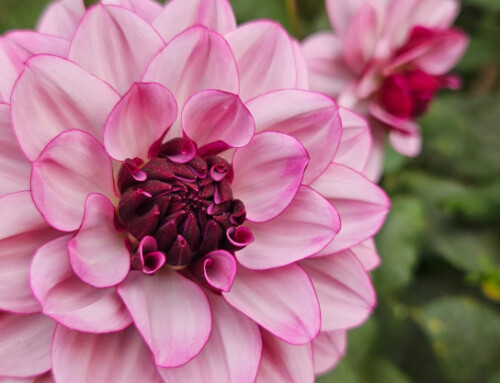
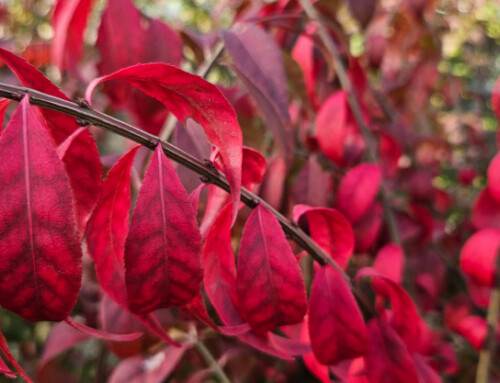
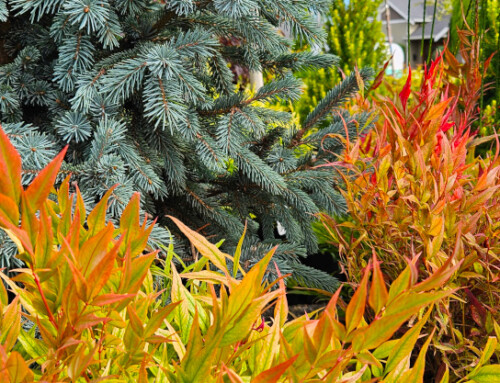
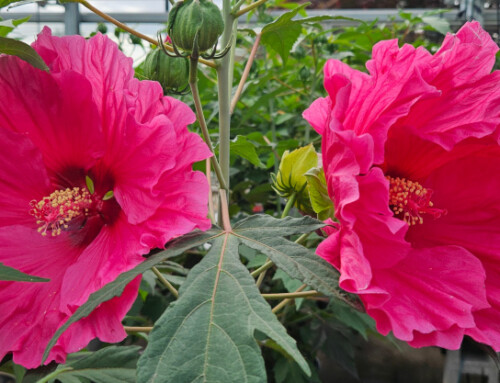
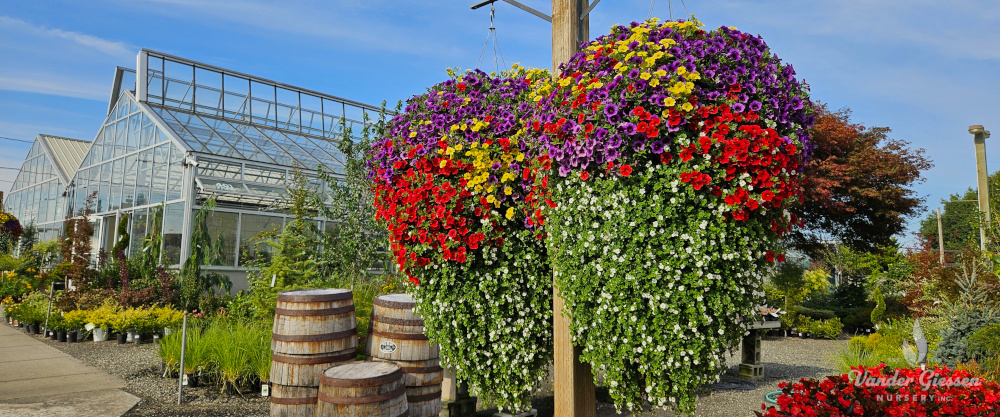
Thank you for your insight and experience!! I always appreciate your writing and help!! Yes, this summer isn’t over… and thank God, our plants have help with you at the helm!!
Thank you for your kinds words, Elaine!